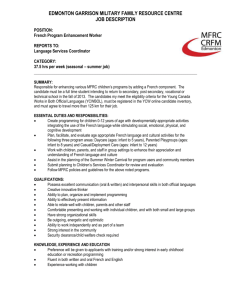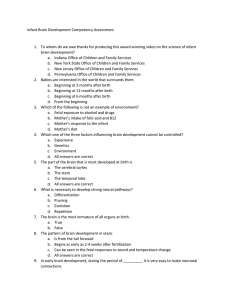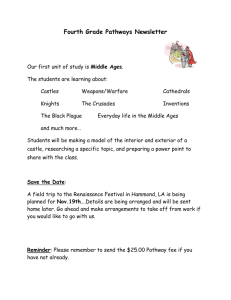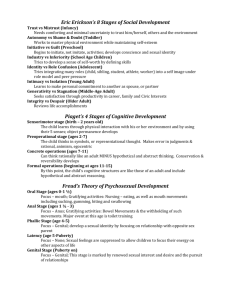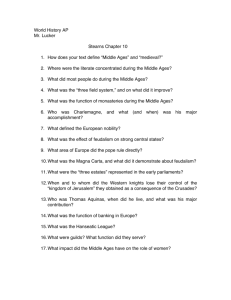Child Development PP
advertisement
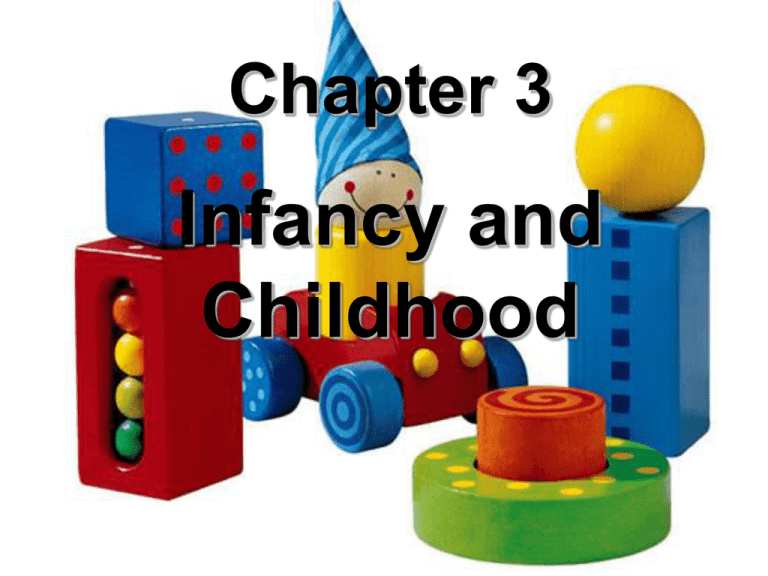
Chapter 3 Infancy and Childhood Physical, Perceptual, and Language Development • Developmental Psychology – the study of changes that occur as an individual matures Nature vs. Nurture Newborns • Grasping Reflex – an infant’s clinging response to a touch on the palm of his or her hand • Rooting Reflex – an infant’s response in turning toward the source of touching that occurs anywhere around his or her mouth. Physical Development Perceptual Development The Development of Language Can Animals Use Language? How Children Acquire Language • Telegraphic Speech – the kind of verbal utterances in which words are left out, but the meaning is usually clear. Cognitive and Emotional Development How Knowing Changes • Schemas - a specific plan for knowing the world. • Assimilation – the process of fitting objects and experiences into one’s schema. • Accommodation – the adjustment of one’s schemas to include newly observed events and experiences. Object Permanence • Object Permanence – a child’s realization that an object exists even when he or she cannot see or touch it. Representational Thought • Representational Thought – the intellectual ability of a child to picture something in his or her mind. The Principle of Conservation • Conservation – the principle that a given quantity does not change when its appearance is changed. • Egocentric – a young child’s inability to understand another person’s perspective. Experiments With Animals Imprinting – inherited tendencies or responses that are displayed by newborn animals. Critical Period – a specific time in development when certain skills or abilities are most easily learned. Surrogate Mothers Human Infants Parenting Styles • Authoritarian Families – parents attempt to control shape, and evaluate the behavior and attitudes of children in accordance with a set code of conduct. • Democratic/Authoritative Family – adolescents participate in decisions affecting their lives. • Permissive/Laissez-Faire Family – children have the final say; parents are less controlling and have a nonpunishing, accepting attitude toward children. Effects of Parenting Styles Child Abuse Social Development • Socialization – the process of learning the rules of behavior of the culture within which an individual is born and will live. Freud’s Theory of Psychosexual Development Oral Stage Infant’s pleasure seeking focused on the mouth. Ages: first 18 months of life Anal Stage Infant’s pleasure seeking centered on functions of elimination. Ages: 1 ½ years to 3 years Phallic Stage Infant’s pleasure seeking focused on the genitals. Ages: 3 – 6 years Latency Stage Sexual thoughts repressed; child focuses on developing social and intellectual skills. Ages: 6 years to puberty Genital Stage Sexual desires are renewed; individual seeks relationships with others. Ages: Puberty through adulthood • Identification – the process by which a child adopts the values and principles of the same-sex parent. • Sublimation – the process of redirecting sexual impulses into learning tasks. Erikson’s Theory of Psychosocial Development Games and Play Role Taking – children’s play that involves assuming adult roles, thus enabling the child to experience different points of view. Moral Development Stages of Moral Development
